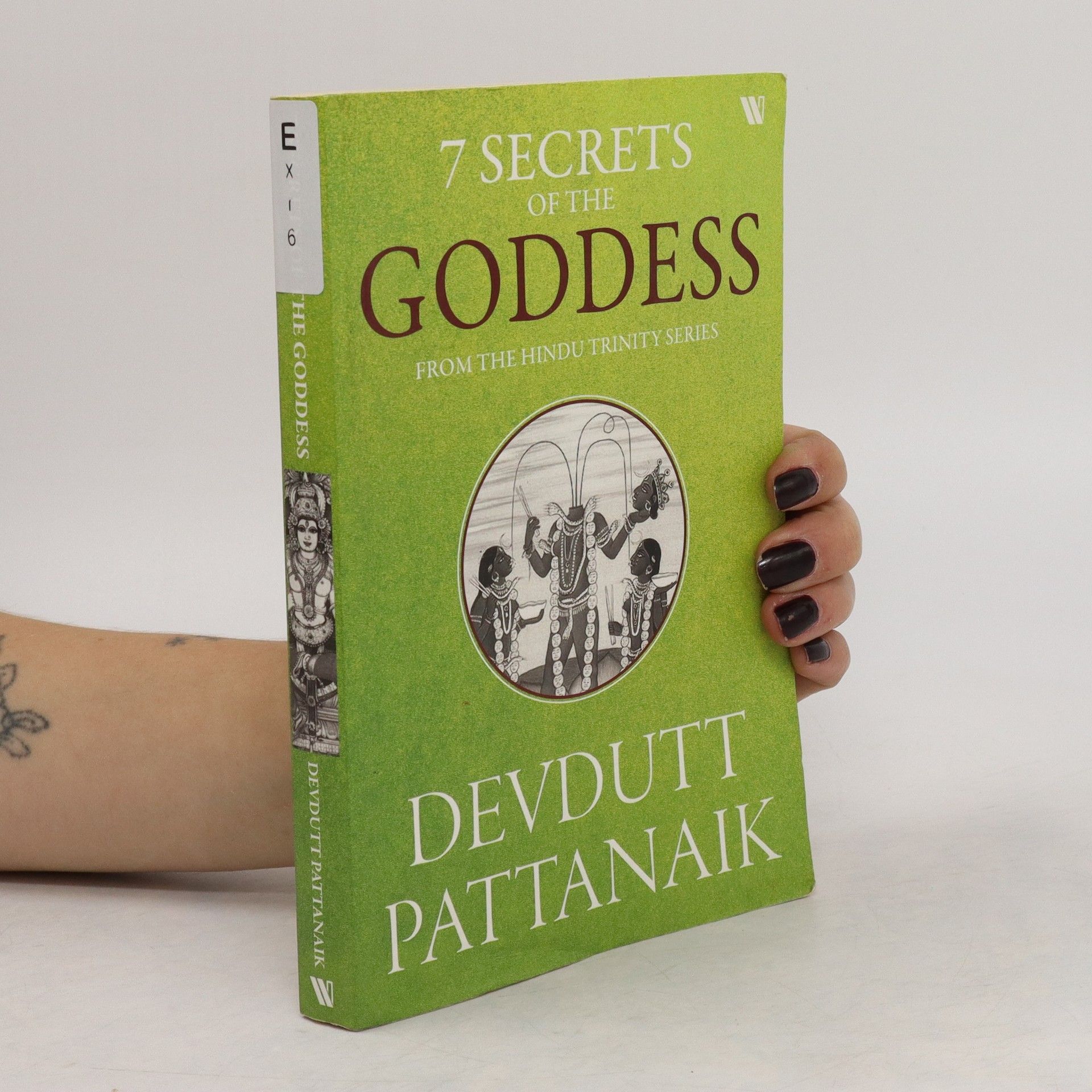Frauen in indischen Mythen
- 254 Seiten
- 9 Lesestunden
Dr. Devdutt Pattanaik ist ein indischer Arzt, der sich dem Mythos, der Mythologie und dem Management widmet. Seine Werke konzentrieren sich stark auf die Bereiche Mythos, Mythologie und Management und bringen die Weisheit der indischen Mythologie in die indische Geschäftswelt, insbesondere im Personalwesen. Sein einzigartiger Ansatz verbindet alte Erzählungen mit modernen Herausforderungen und erforscht die tiefen Wahrheiten, die in Mythen verborgen sind, um den Lesern neue Perspektiven auf die menschliche Natur und die Gesellschaft zu bieten.







Read and Colour, All-In-One Storybook, Picture Book, and Colouring Book for Children by Devdutt Pattanaik, India's Most-Loved Mythologist
The book presents captivating tales from Hindu mythology, highlighting the adventures of Hanuman, including his near encounter with the sun and his role in rescuing Sita alongside Ram. It is enriched with over forty playful artworks, offering readers a visual feast, and includes dedicated coloring pages for an interactive experience.
In a world where gods and animals are intertwined, the narrative explores their mutual dependence. The gods require animals for their journeys across the globe, while the animals seek wisdom and knowledge from the divine beings. This symbiotic relationship unfolds as they embark on adventures, highlighting themes of cooperation, learning, and the interconnectedness of all creatures. The story promises to deliver a rich tapestry of experiences that illuminate the bond between the divine and the natural world.
Exploring the Garuda Purana, this book delves into Hindu beliefs surrounding death, rebirth, and immortality. It offers profound insights into the spiritual and philosophical dimensions of these concepts, providing readers with a deeper understanding of the cycle of life and the nature of existence in Hindu thought.
High above the sky stands Swarga, paradise, abode of the gods. Still above is Vaikuntha, heaven, abode of God.The doorkeepers of Vaikuntha are the twins, Jaya and Vijaya, both whose names mean 'victory'. One keeps you in Swarga; the other raises you into Vaikuntha.In Vaikuntha there is bliss forever, in Swarga there is pleasure for only as long as you deserve. What is the difference between Jaya and Vijaya? Solve this puzzle and you will solve the mystery of the Mahabharata.In this enthralling retelling of India's greatest epic, the Mahabharata originally known as Jaya, Devdutt Pattanaik seamlessly weaves into a single narrative plots from the Sanskrit classic as well as its many folk and regional variants, including the Pandavani of Chhattisgarh, Gondhal of Maharashtra, Terukkuttu of Tamil Nadu and Yakshagana of Karnataka.Richly illustrated with over 250 line drawings by the author, the 108 chapters abound with little-known details such as the names of the hundred Kauravas, the worship of Draupadi as a goddess in Tamil Nadu, the stories of Astika, Madhavi, Jaimini, Aravan and Barbareek, the Mahabharata version of the Shakuntalam and the Ramayana, and the dating of the war based on astronomical data.With clarity and simplicity, the tales in this elegant volume reveal the eternal relevance of the Mahabharata, the complex and disturbing meditation on the human condition that has shaped Indian thought for over 3000 years.
Lakshmi massages Vishnus feet. Is this male domination? Kali stands on Shivas chest. Is this female domination? Shiva is half a woman. Is this gender quality? Why then is Shakti never half a man? Taken literally, stories, symbols and rituals of Hindu mythology have much to say about gender relationships. Taken symbolically, they reveal many more things about humanity and nature. Which is the correct reading? The fourth title in the bestselling 7 Secrets series focuses on the Goddess and respected mythologist Devdutt Pattanaik tries to unravel the secrets locked within her stories, symbols and rituals.
Have you lost all hope? Does the world feel bleak and unforgiving? The COVID-19 crisis has seen many of us lose family, friends, colleagues. How can you recover from this devastating loss? You are surrounded by anger and violence everywhere. Bad news hits you – a failing economy, climate change – every day. Do you want to run away? Are you anxious about money, your family, and your future? In this book, the author helps you to unravel your emotions and find a way to move from darkness into light. Using stories from our epics and concepts from Hindu, Buddhist, and Jain thought, he shows you a new way to look at your life and gives you the tools to find hope again. Simple yet profound, moving and stimulating, Hope will change the way you view the world and help you find your path again.
Exploring the rich tapestry of Indian marriage customs, this work draws from a vast array of sources, including Vedic texts, Puranic stories, and regional folklore, spanning 3000 years and diverse geographies. The author, Devdutt Pattanaik, unveils the intricate narratives that illustrate the varied beliefs and practices surrounding marriage in India, highlighting both their diversity and evolution over time. This compilation offers a deep understanding of the cultural significance of marriage within Indian society.
How Judaism, Christianity and Islam Affirm the Dignity of Queer Identities and Sexualities
In 2015, a historic panel discussion took place at the global Festival of Theology held in Sweden. Its objective was to examine what the sacred texts of the Abrahamic faiths -- Judaism, Christianity and Islam -- had to say about human sexuality. Behold, I Make All Things New is the outcome of the effort. This is a landmark work that recasts religion -- especially Abrahamic faiths -- as an ally and not an adversary of queer emancipation, and thus significantly informs the secular and legal movements for LGBTQ rights around the world. It follows in the same vein as I Am Divine, So Are You (2017), which put forth perspectives on sexuality from the Karmic faiths of Buddhism, Jainism, Sikhism and Hinduism, and played a small but significant role in the reading down of Section 377 of the Indian Penal Code. Taken together, the two groundbreaking books expand the conversation between world religions and human sexuality to a truly global level.